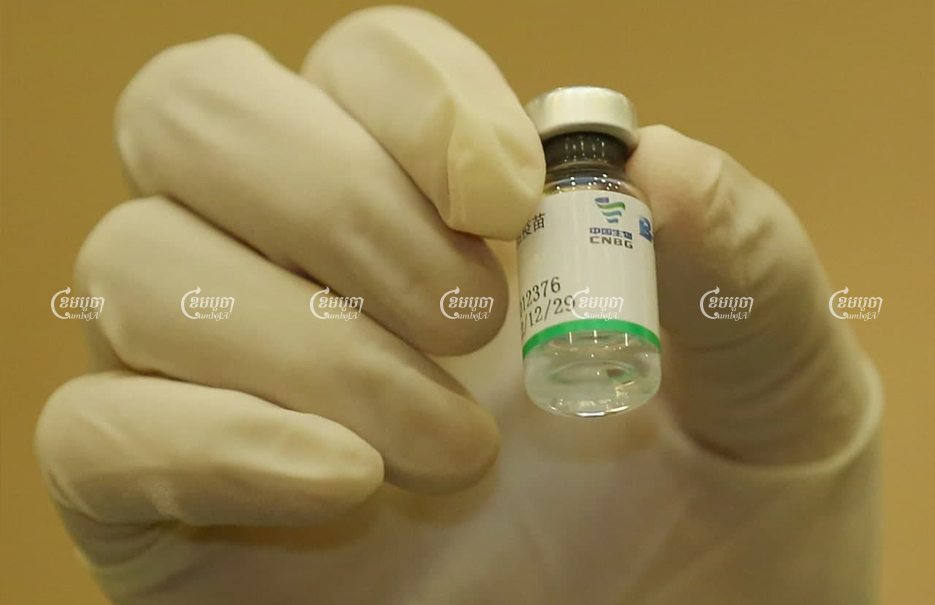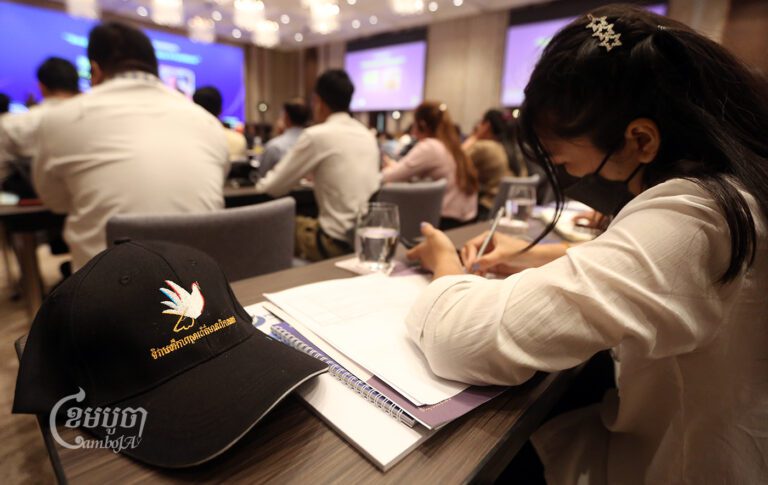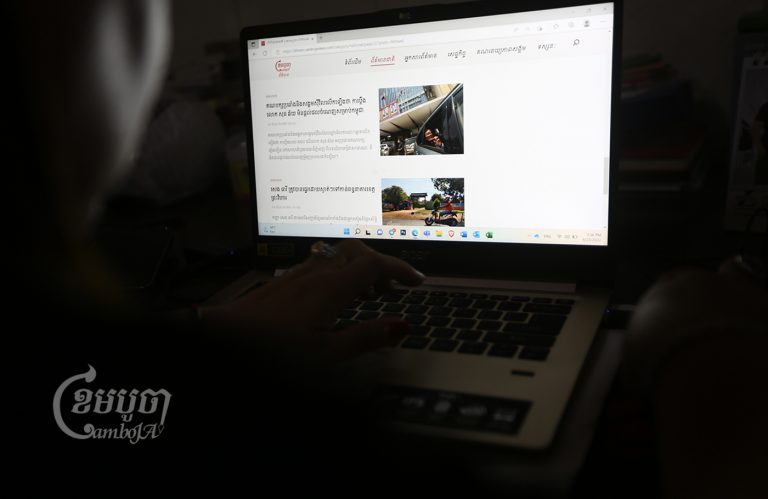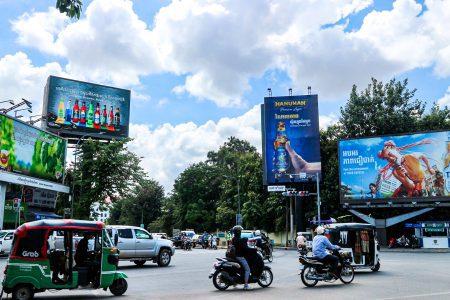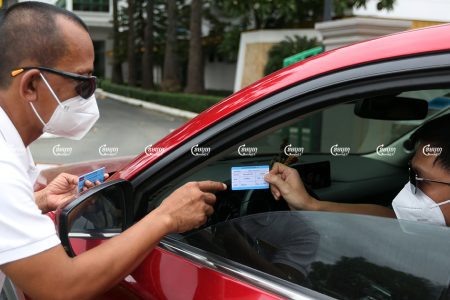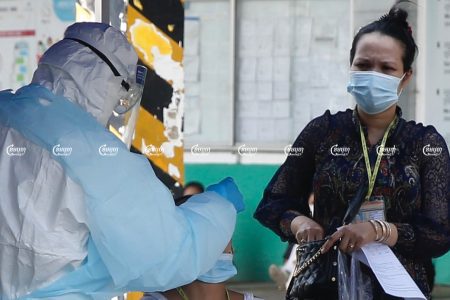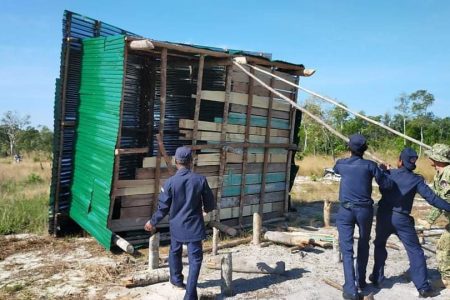The Ministry of Health will push for prosecution of people found to be allegedly spreading fake news about the Chinese-made Sinopharm COVID-19 vaccine, with the Justice Ministry saying it would utilize the oft-used incitement charge.
The government started vaccinating frontline workers and priority groups last week, using the first batch of Sinopharm vaccine, which has been donated by China. The government had a shaky start and has failed to reassure people about the efficacy of the vaccine, which claims to be 79 percent effective against the novel coronavirus.
Or Vandine, a Health Ministry spokesperson, held a press conference on Friday and said the ministry was seeing fabricated “news” about the Sinopharm vaccine and urging people to not use the vaccine.
She pointed to a Facebook page yesterday that posted about a teacher in Kratie province who died after getting the vaccine. But the teacher had died of meningitis and encephalitis, Vandine said, and that doctors had tried to treat her health conditions. Vandine said the teacher had not received the vaccine.
“The person who created this news is without heart and humanity because [the teacher’s] family is suffering but this person used her photo for fun,” Vandine said.
To crackdown on vaccine-related “fake news,” Prime Minister Hun Sen on Monday ordered the Health and Justice Ministries to amend a 2015 sub-decree on protecting against infectious diseases at the country’s borders to substantially increase the fines associated with the directive.
The amended sub-decree was passed on Thursday, and people who evade quarantine will have to pay $1,250, up from $250, and “ringleaders” will be fined $12,500. They will have to pay within 30 days, or else the Healthy Ministry could send the case to court.
Kim Santepheap, a Justice Ministry spokesperson, said any cases of vaccine “fake news” would be considered as an incitement charge – a catchall charge used to quell dissent in the country. The charge carries up to two years in prison.
“So, fake news dissemination related to the Sinopharm vaccine from China with the clear intent to create chaos in society and make people lose confidence [in the vaccine],” Santepheap said.
Santepheap said people needed to pay attention to this problem and not behave carelessly.
Chak Sopheap, executive director at Cambodia Center for Human Rights, said the freedom of expression includes the rights to hold opinions and to seek, receive or impart information and ideas of all kinds.
She said it was important for the government, and media, to disseminate accurate and reliable health information. But, subjectively classifying news as “fake news” did not warrant legal repercussions, she said.
“Further, the fear of criminal sanctions may create an environment of self-censorship, as individuals will be wary of sharing their opinions and views out of fear they might unknowingly contribute to the spread of misinformation pertaining to COVID-19,” Sopheap said. “The RGC should therefore consider resorting to less punitive measures.”
Ministry of Health figures show that 4,669 persons wanted to get vaccinated from February 10 to 18 but 3,803 civilians were allowed to vaccinate because the others had health issues. Additionally, 12,809 military and security personnel had been inoculated against COVID-19.
Cambodia has reported 484 cases of COVID-19, as of Friday evening, with 470 people who have recovered and zero reported deaths.


